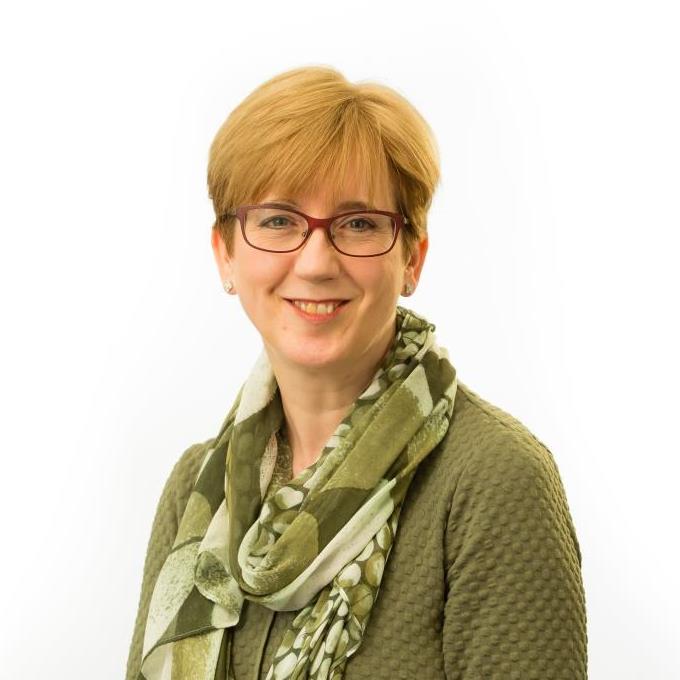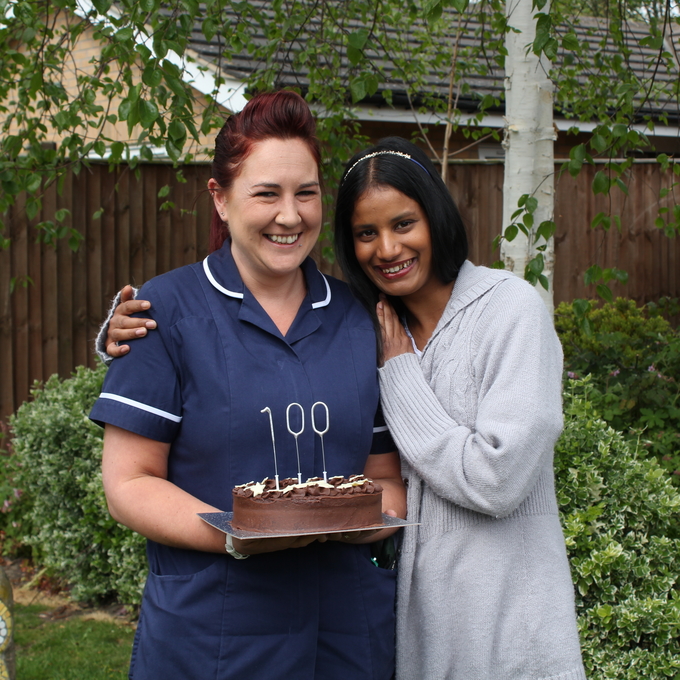Sue's post board blog July 2019
Our Chair Professor Sue Proctor blogs after every public Trust Board meeting. Here she talks veteran’s mental health, e-cigs, access standards for services, recruiting and retaining nurses and improving culture.
 Hello,
Hello,
Welcome to my blog following the Trust Board meeting on 25 July 2019.
We had a really vibrant meeting with contributions from service users, staff and members of public – and all this in spite of the record breaking temperatures outside.
We started as always with our sharing stories section. This month we were delighted to be joined by Vicki Ray and Dr Lawrence Atkins from the Veterans’ mental health service. This is a relatively new team set up to provide an enhanced service for military veterans who have complex mental health problems related to their time in the armed forces.
We watched a short film about Adam Brook, a former soldier, who talked about his experience of the Veterans’ Service and how it had helped him. One strong message was the need to break down barriers to ex-service personnel disclosing their mental health problems and seeking help, which takes around 13 years on average, which we all found staggering.
Watch Adam’s story here.
Vicki went on to talk about the work of the service, the profile they’ve established and their successes including having their contract extended. Board members were impressed, especially in their commitment to look after each other’s mental wellbeing as well as their service users.
Read the full presentation here.
Questions from the public
The Board received two questions this month. The first one was delivered in person by someone trying to access our Gender Identity Service but had become infuriated by the long waiting times and the ongoing stagnation of national investment to increase access and provision.
Whilst we agreed and sympathised with a lot of what she said, the issue remains that demand for this service is constantly increasing way beyond what is planned for nationally.
Our Chief Operating Officer Joanna Forster Adams is leading on our response to this. We’ll be writing to NHS England highlighting the impact the ongoing delays are having on people who really need this service.
The other question we received related to the use of e-cigarettes in our buildings and some ongoing frustration experienced by staff and service users, as these devices can be useful to help people quit smoking.
This issue was covered in our agenda later on in the meeting. We discussed a three month pilot starting in September at the Newsam centre, where use of disposable e-cigarettes will be trialled. This is our latest step towards becoming a smoke-free Trust, and I think we can all agree that promoting health by supporting our service users to stop smoking is the right thing to do.
The Chief Exec’s report
In her report, our Chief Executive Dr Sara Munro highlighted her recent visits to staff at the Becklin Centre. This followed two small fires in one of the inpatient wards which were managed well by colleagues. Sara has been in touch with the West Yorkshire Fire and Rescue Service to understand what actions we need to take but also to help them understand the context of mental health wards.
Sara also reported on discussions at a Leeds and West Yorkshire system-wide level, and how we’re contributing to a five year strategy for both as part of the implementation of the NHS Long Term Plan. A key development of the Leeds strategy is the ongoing roll out of the 18 local care partnerships which see NHS, local authority and third sector (or community) staff working together more effectively, closer to where patients live. A great example of this will be the new Leeds Mental Wellbeing Service which aims to go live in November this year.
Our quality performance – access standards and delayed transfer of care
We’ve seen some fantastic improvements in access targets across our specialist services. A few highlights include:
- The Leeds Autism Diagnostic Service’s referral to first assessment target within 13 week target; rising from 11% in November 2018 to almost 94% in June.
- The Community Learning Disabilities Team consistently seeing 70% of people within their four week referral target, and
- The Acute Liaison Psychiatry (ALPs) team achieving its best performance in the last couple of months – seeing around 85% of people within one hour of attending A&E.
The recent refresh of our community mental health teams in March has seen a slight dip in performance relating to our two week access standard. However we still perform well when compared to other Trusts. As with any new service model, we’ll continue to evaluate and use feedback to make improvements.
We’ve also reported consistent delays in discharging people from our adult inpatient wards. This isn’t right for our service users and also affects our use of out of area beds. I know we’re working hard internally to address this issue. It’s vital too that we work with our partners in Leeds to make sure our service users move from our wards into the right housing where we can continue to deliver the best care.
Director of nursing report
I was pleased to hear about some of our achievements in the recruitment and retention of nurses across the Trust. This September, 80% of all Leeds nursing graduates are taking up posts with us – a huge increase on previous years. It’s so important to not only recruit well, but to retain our nurses too. That’s why we’re putting a real focus on career development so our nurses know they can fulfil their potential whilst working for us.
Similarly, we’re really keen to recruit more learning disability (LD) nurses, so it was great to hear about our plans to partner with local universities to help achieve this. I’m really proud of the work our LD teams do, particularly at a time when care for people with a learning disability is under scrutiny in the media. This year marks a centenary of learning disability nursing, so there’s no better time to join our team. Check out some of our LD nursing super stars here including Lindsey Hoather seen here celebrating with one of our service users.

Finally, we discussed the new Sexual Assault Referral Centre (SARC) being developed in West Yorkshire to improve services for victims and survivors of sexual abuse and sexual violence. I’ve carried out some regulatory visits to SARCs and see some real opportunities for us as a Trust to make a difference and work with our partners to maintain a focus on the mental health of victims.
Safer staffing report
This report highlighted a really important issue facing us and other Trusts like us: how we balance maintaining safety on our wards with the cost pressures attached to putting more staff on a shift.
It was interesting to hear an update on the recent trial of the Learning Disability and Mental Health Optimal Staffing Tool (MHOST), which helps determine what staffing levels are needed on acute wards according to the acuity and dependency of service users. This insight is really useful, and reflects a consistent picture across mental health trusts of the need to reprioritise acute services. We’ll continue to work with commissioners to highlight the investment needed to improve how we care for our service users.
Our workforce and the importance of equality and inclusion
We spent some time discussing how our workforce priorities align to the recently-published NHS People (interim) Plan. Our Director of Workforce and Organisational Development, Claire Holmes, highlighted some great progress. For example:
- We’re investing further in our health and wellbeing strategy to keep staff mental health high on our agenda,
- We’re developing a competency framework to support a step change in our culture, and
- We’ve appointed a health and wellbeing manager to tackle issues around sickness and absence for stress and anxiety reasons.
Equality and inclusion formed part of this conversation, and came up again later in our agenda. We talked about equality and inclusion at a Trust, system and place level – and acknowledged that there’s some really important work to do. Our ambition is that equality and inclusion should be part of everything we do, and I’m confident that by achieving this we’ll be an employer of choice.
Of course this is just a snapshot of the detail that was presented and discussed at our Trust Board meeting. You can read the papers on our website here.
Our next meeting will be at 9.30am on Thursday 26 September in the Horizon Centre in Leeds and people are more than welcome to submit questions and attend in person.